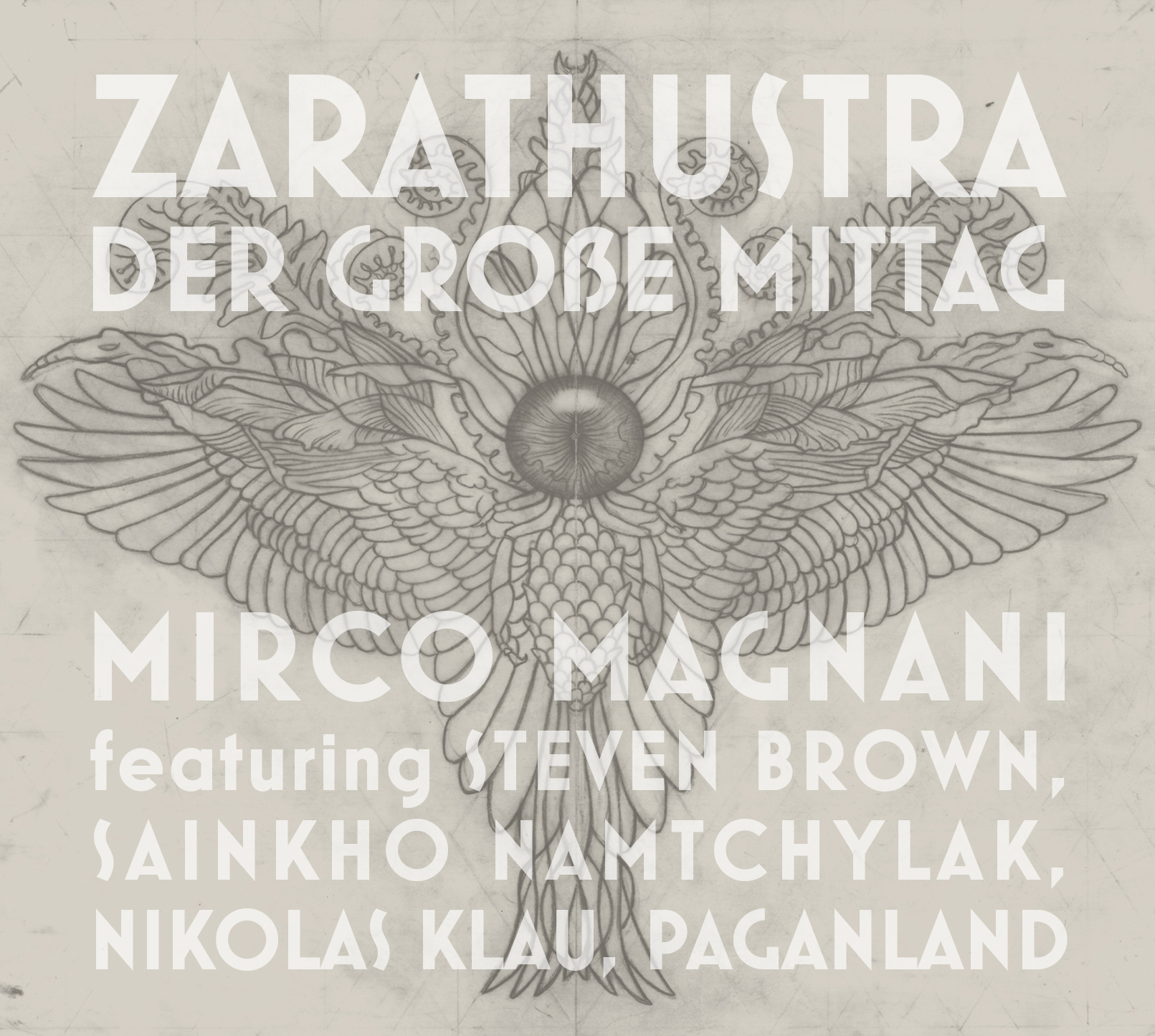Der in Berlin lebende Musiker und Kurator Mirco Magnani bringt in einigen Tagen ein neues Album heraus, an dem zahlreiche Gäste wie Valentina Bardazzi, Sainkho Namtchylak, Steven Brown, Paganland, Nicolas Klau, Charuk Revan, Andreas Yakovlev Mich und Andrea De Witt – zum Teil als Mitinterpreten, zum Teil als unterstützende Acts – mitwirken. “Zarathustra – Der Große Mittag” geht den philosophisch-aphoristischen Gedanken des Zoroaster nachempfundenen Sprechers in Friedrich Nietzsches hymnischem Gedicht Also Sprach Zarathustra in vier Sprachen und üppiger, auf Elektronik, Blas- und Saiteminstrumenten und natürlich Stimmen basierenden Instrumentierung nach und präsentiert eine Musik, die wie schon die Aufnahmen seines der Alchemie und C.G. Jung gewidmeten Projektes keinem eindeutigen Genre zuzuordnen sind und u.a. Einflüsse ritueller elektonischer Klangkunst und neoklassischer Traditionen verarbeitet. Das Album erscheint als CD und bei Klanggalerie und digital über das hauseigene Label Undogmatisch.
“This project started four years ago with the intention of rediscovering the messages behind a book that seems never to be truly understood but somehow appears as an evergreen source of purity, a message of hope for humanity that seems to forget its real motivations. Even during his lifetime Zarathustra himself, as written in the Avesta, was always opposed by the mediocrity of the common thought of his contemporaries, fighting against ritualism, respecting animal life and nature especially in a period in which non-violence was not even idealistic. Four different languages to give a multicultural vision of Nietzsche’s text from four important old and new cultures, somehow connected to that book: the German, the English, the Iranian and the Russian one. For Nietzsche “Der Grosse Mittag” was a secondary option for the title „Also Sprach Zarathustra“ as achievement of awareness of the non-existence of any form of dualism of reality”. (Mirco Magnani/Undogmatisch/Klanggalerie)
